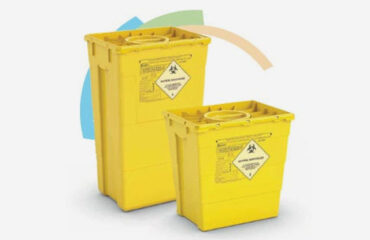Some Known Questions About Reclaim Waste.
Some Known Questions About Reclaim Waste.
Blog Article
The Buzz on Reclaim Waste
Table of ContentsWhat Does Reclaim Waste Mean?Reclaim Waste Things To Know Before You Get ThisGetting My Reclaim Waste To WorkThe Reclaim Waste PDFsSee This Report on Reclaim Waste
Check out the types, events, and forms of fluid waste. Domestic sewer waste refers to the waste and items from a property septic system. This kind of waste is produced by human beings in homes, schools, and various other buildings. This only includes septic systems that have a drainpipe area. The correct administration and disposal of residential sewer waste require liquid waste to be moved to a sewage therapy plant where the proper approaches and equipment are used to purify and deal with waste.
Business waste frequently consists of possible hazards, such as combustible products or a mixture of liquid and strong waste products, and needs an advanced and in-depth disposal procedure. The disposal of business waste generally includes the purification of waste prior to transport to ensure secure and correct disposal. Industrial waste is developed from byproducts and overflow of commercial procedures and manufacturing.
This sort of waste can not use the same sewage monitoring transport or procedures as septic or commercial fluids. The commercial waste management process requires the evaluation and testing of liquid waste before it goes through the disposal process (liquid waste removal). Overflow waste is the liquid waste that comes from runoff and excess stormwater in extremely populated areas or cities
Runoff waste can cause contamination and flooding if not handled correctly. Discover more about sewer cleansing and waste management. Ensuring proper waste monitoring can protect against calamities and minimize environmental harm. Both people in household setups and experts in industrial or production markets can profit from recognizing the procedures and policies of liquid waste administration.
About Reclaim Waste
Get in touch with PROS Providers today to find out about our waste management and disposal solutions and the proper methods to look after the liquid waste you create.
(https://reclaimwaste1.blog.ss-blog.jp/2024-11-12?1731425991)Do you know what takes place to your water when you end, purge the bathroom or drain pipes the washing machine? No? Well, it's worth knowing. This supposed 'wastewater' is not just a crucial resource however, after treatment, will certainly be released to our land, waterways or the sea. Utilized water from commodes, showers, baths, cooking area sinks, laundries and commercial processes is referred to as wastewater.

water used to cool down equipment or clean plant and devices). Stormwater, a kind of wastewater, is overflow that moves from agricultural and metropolitan locations such as roofing systems, parks, yards, roadways, paths and rain gutters right into stormwater drains, after rain. Stormwater moves untreated straight to local creeks or rivers, ultimately getting to the sea.
Some Known Incorrect Statements About Reclaim Waste
In Queensland, many wastewater is treated at sewer treatment plants. Wastewater is transferred from residential or commercial websites with a system of drains and pump stations, referred to as sewerage reticulation, to a sewer treatment plant. Local federal governments develop, preserve and run most sewage treatment plants. Operators are licensed under the Environmental Management Act 1994 to discharge cured wastewater at an appropriate ecological criterion right into rivers.
The Department of Natural Resources advises local federal governments regarding handling, operating and preserving sewerage systems and therapy plants. In unsewered areas, city governments might call for homeowners to mount private or household sewer therapy systems to treat residential wastewater from bathrooms, kitchen areas, shower rooms and laundries. The Department of Natural Resources authorises the use of home systems when they are proven to be efficient.
In some brand-new subdivisions, treatment of some stormwater to get rid of litter, sand and gravel has actually started utilizing gross toxin catches. Wastewater therapy occurs in 4 stages: Gets rid of strong matter.
Wastewater then streams right into big storage tanks where solids clear up and are eliminated as sludge. Oil and scum are skimmed from the surface. Makes use of little living organisms called micro-organisms to damage down and remove continuing to be liquified wastes and great fragments. Micro-organisms and wastes are sites integrated in the sludge. Gets rid of nitrogen and phosphorus nutrients that might trigger algal flowers in our waterways and endanger marine life.
Not known Details About Reclaim Waste
Nutrient elimination is not readily available in any way sewer therapy plants because it calls for pricey specialist equipment. It is ending up being much more common in Queensland. Clear fluid effluent produced after therapy might still include disease-causing micro-organisms. If this effluent is launched right into rivers such as rivers or the sea, the micro-organisms will eventually die out.

A lot of wastewater flows right into the sewerage system. Under the Act, local federal governments administer authorizations and licences for environmentally appropriate tasks (Ages) including wastewater releases that may have a local impact.
Reclaim Waste - The Facts
Or else, samples are taken for lab analysis. Frequently several examinations are required to establish the levels of each of the different toxins such as oils, heavy metals and chemicals in water. Surveillance provides accurate info concerning water top quality and can confirm that licence conditions are being satisfied. The details gotten through monitoring supplies the basis for making water top quality choices.
Report this page